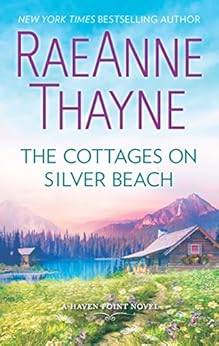About the Book:
Jessica Mason isn’t looking for love when she meets Ridley Chesterfield. Instead she is still reeling from the tragic, unexpected loss of her husband and daughter—and awaiting the arrival of her unborn child. Harboring the secret of her husband’s betrayal, her pain is deeper than anyone knows.
Ridley Chesterfield is hiding out in Hope Springs, Idaho, avoiding a political scandal and the barrage of false media headlines that have tarnished his good name. The last thing Ridley wants is a relationship—but when fate leads Ridley to form a friendship with his reclusive and pregnant neighbor, he wonders if this small-town hideout might be more of a long-term destination.
When Jessica begins to read her great-grandfather’s Bible, she finds a connection with a man she never knew. Somehow the verses he marked and the words he wrote in the margins open her heart to healing. And as Ridley and Jessica help each other forgive the people who have wronged them, they must decide if the past will define them or if they will choose to love again.
Who I Am With You weaves together a modern-day romance with Jessica’s great-grandfather’s story from the 1930s, reminding us that some truths can cross generations and that faith has the power to transform families forever.
My Comments:
There were a few years during which I read a lot of Christian fiction, mostly because the publishers were generous with review copies. When NetGalley started offering a variety of genres I started reading different things and often skipped the Christian fiction. This one caught my eye so I gave it a try. Unfortunately, though the basic storyline/romance was interesting, the book quickly became a sermon dressed up like a story and the characters became unrealistic. It is one of those too good to be true, find Jesus and all will be well type books.
I'd like to thank the publisher for making a review copy available via NetGalley. Grade: B-


![Map of the Heart: A Novel by [Wiggs, Susan]](https://images-na.ssl-images-amazon.com/images/I/5197QJNw5WL._SY346_.jpg)
![Season of Wonder by [Thayne, RaeAnne]](https://images-na.ssl-images-amazon.com/images/I/51m82buTRNL.jpg)
![The Ones We Choose by [Clark, Julie]](https://images-na.ssl-images-amazon.com/images/I/51PpBZhM1AL.jpg)
![Christ in the Classroom: Lesson Planning for the Heart and Mind by [Dees, Jared]](https://images-na.ssl-images-amazon.com/images/I/51mW3kEzpRL._SY346_.jpg)
![When We Found Home by [Mallery, Susan]](https://images-na.ssl-images-amazon.com/images/I/51PPZEa4YML._SY346_.jpg)

![Every Note Played by [Genova, Lisa]](https://images-na.ssl-images-amazon.com/images/I/41tX-0J7feL._SY346_.jpg)
![Winter Solstice (Winter Street) by [Hilderbrand, Elin]](https://images-na.ssl-images-amazon.com/images/I/51Amp4BPC%2BL.jpg)
![The Summer List: A Novel by [Mason Doan, Amy]](https://images-na.ssl-images-amazon.com/images/I/51M5EI383tL.jpg)
![Sandpiper Shore (Harmony Harbor) by [Mason, Debbie]](https://images-na.ssl-images-amazon.com/images/I/51JKH6IQPOL.jpg)

![The Family Gathering (Sullivan's Crossing) by [Carr, Robyn]](https://images-na.ssl-images-amazon.com/images/I/51Uib5dHofL._SY346_.jpg)

![Not Perfect: A Novel by [LaBan, Elizabeth]](https://images-na.ssl-images-amazon.com/images/I/51hkxRxlNRL._SY346_.jpg)

![Sisters Like Us (Mischief Bay) by [Mallery, Susan]](https://images-na.ssl-images-amazon.com/images/I/518iq2nV3EL._SY346_.jpg)
![A History of the Church in 100 Objects by [Aquilina, Mike, Aquilina, Grace]](https://images-na.ssl-images-amazon.com/images/I/51Opj3VcGAL.jpg)
![The Promise Between Us by [White, Barbara Claypole]](https://images-na.ssl-images-amazon.com/images/I/61lTvP1eUGL._SY346_.jpg)
